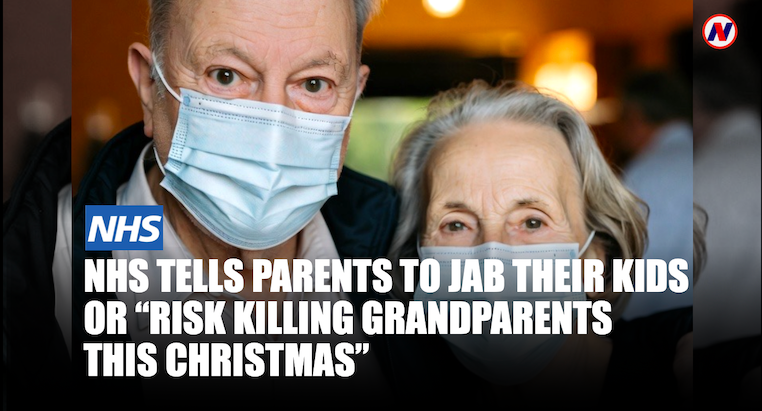The West Caused War in Ukraine
- Editor Darren Birks

- May 9, 2022
- 4 min read

The West caused the war in Ukraine, and here's why.
At the annual military parade in Moscow's Red Square Vladimir Putin took the opportunity to remind Western leaders that Russian troops in eastern Ukraine were there as a direct result of the West's expansionist aims. Putin expressed it to the Russian people as troops "defending the motherland" and reiterated that the military operation was provoked by the West.
According to mainstream media the Ukraine crisis can be blamed entirely on Russian aggression. The BBC in particular have spun stories that Putin has expansionist aims, that he wants to recreate the Soviet Bloc, or that he envisions a new era of Imperialist Russia. None of which there is any evidence of whatsoever. He has never expressed wishes to do any of those things, but painting Putin as some pantomime villain in much the same way as they did Donald Trump allows all the nonsense that follows.
Vladimir Putin, the argument goes, annexed Crimea out of a long-standing desire to resuscitate the Soviet empire, and he is now going after the rest of Ukraine, and, once he's taken Ukraine he will go after other countries in eastern Europe. It's an easy story to tell, because since the second world war Russia has been seen by the West as the next country to fight. The fact that Russia is no longer a Communist country is played down in the media's scenario.
Putin’s actions have been triggered because of the West's broken promises about keeping the former Soviet Bloc countries independant. When the Iron curtain came down Western nations told the nervous Russian government that they not move east, and that those countries would remain independent and free of Western influence or occupation. But, no sooner had the former Soviet Bloc dissolved than the European Union and NATO were encouraging the countries to join them. The EU has put huge resources into expanding East and NATO had been courting all of the former Soviet countries, even though none of them are anywhere near the North Atlantic.
Ukraine is a huge expanse of land that Napoleonic France, imperial Germany, and Nazi Germany all crossed to strike at Russia itself, and serves as country of enormous strategic importance to Russia. The hollow promises of Western leaders have given way to the West's march East. In less than three decades the West are again right on the doorstep of Russia. The 'buffer zone' that NATO assured Russia it would keep is gone, and enemy forces are right at the gates once more.
Moscow complained bitterly right from the start. During NATO’s 1995 bombing campaign against the Bosnian Serbs, for example, the then Russian President Boris Yeltsin said, “This is the first sign of what could happen when NATO comes right up to the Russian Federation’s borders. War could burst out across the whole of Europe.” But the Russians were too weak at the time to derail NATO’s eastward advance, which, at any rate, did not look so threatening, since none of the new members shared a border with Russia, save for the tiny Baltic countries.
Then NATO began looking further East in direct contradiction to the treaties they'd signed declaring they would never do so. At its April 2008 summit in Bucharest, the alliance considered admitting Georgia and Ukraine, The George W. Bush administration supported doing so, but France and Germany opposed the move for fear that it would unduly antagonize Russia. In the end, NATO’s members reached a compromise: and did not give them full membership at the time, but began the formal process leading up to membership, issuing a statement endorsing the aspirations of Georgia and Ukraine and boldly declaring, “These countries will become members of NATO.”
Russia’s invasion of Georgia in August 2008 should have dispelled any remaining doubts about Putin’s determination to prevent Georgia and Ukraine from joining NATO. He had sat by and watched NATO and the EU administration say that they wouldn't come anywhere near Russia's borders only to do exactly that, almost taunting him with their announcement. Georgian President Mikheil Saakashvili, who was deeply committed to bringing his country into NATO, and these actions gave Putin little or no choice but to send troops in to the region.
The EU too have been marching eastward. In May 2008, it unveiled its 'Eastern Partnership initiative', the first step towards it enveloping such countries as Ukraine and integrate them into the EU Machine. Not surprisingly, Russian leaders viewed the plan as hostile to their country’s interests. It should also be noted that idea of an EU army was born out of the desire to grab these countries the moment the US suggested that this could bring them in direct conflict with Russia itself.
The West’s triple package of policies—NATO enlargement, EU expansion, and democracy promotion has proven too much for Putin. He has already been shown to be paranoid, not to mention a narcissist, and the idea that enemy forces would be less than 300 miles from Russia's capital city will have given Putin more than a few sleepless nights. His decision to send in the tanks is not the fall of europe, nore is it because he wants to build a new Imperialist Russia, it is merely a reaction to NATO aggression and EU expansion.
But complex geopolitical history is not as easy to digest as 'Putin man bad' and doesn't fit the BBC's narrative.
Related article





Comments